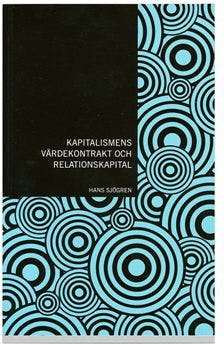Kapitalismens värdekontrakt och relationskapital
Abstract
Det kapitalistiska systemets långsiktiga framgång är avhängigt av hur väl det löser olika ekonomiska problem på ett effektivt sätt. Att koordinera ekonomiska aktiviteter via marknaden är bara en av flera lösningar. I denna bok behandlas en kompletterande koordinationsform, som kallas värdekontraktet, med samarbete, avtal, tillit, förhandlingar och delad kultur som kännetecken.
Värdekontraktet symboliseras av ett handslag, till skillnad från den osynliga handen i fallet med marknaden. I boken visas hur värdekontraktet utgör den dominerande formen för ekonomisk aktivitet i t ex företagsrelationer och relationer mellan företag och kund. Med exempel från vardagslivet och det finansiella området förklaras hur värdekontraktet reducerar framtidens osäkerhet och bildar grund för ett tillitsfullt och mänskligt affärsklimat.
Kapitalismens värdekontrakt och relationskapital är skriven inom Ratios forskningsprojekt Marknad, moral, tillit och tillväxt.
Sjögren, H. (2008). Kapitalismens värdekontrakt och relationskapital. Stockholm: Ratio Förlag.

Hans Sjögren är professor i ekonomisk historia och institutionell ekonomi vid Linköpings universitet och forskare vid EHFF, Handelshögskolan i Stockholm. Hans forskning är inriktad mot teknisk och ekonomisk omvandling där institutionell analys används för att söka förklaringar och fördjupad förståelse av mönster och enskildheter, inom branscher och hos företag.

